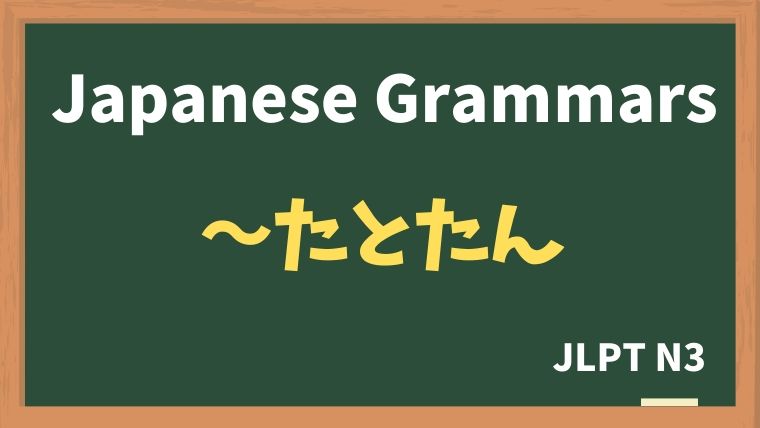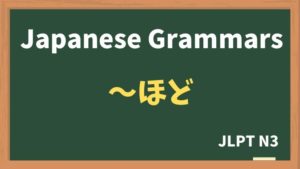
Explanation:〜たとたん / 〜たとたんに
fa-check-circleMeaning
"〜するとすぐに:as soon as, just at the very moment"
Used to indicate that something happened immediately after a certain action or event. It highlights the suddenness or immediacy of the following event.
fa-check-circleForm
V(Ta form)+ とたん
fa-check-circlePoints
- Immediate Reaction: "〜たとたん" is used to describe an event that occurs instantly after another action. The second event happens as soon as the first action is completed.
- Surprise or Unexpectedness: This expression often carries a nuance of surprise, indicating that the speaker did not expect the event to happen so quickly or suddenly.
fa-check-circleJLPT Level
N3
fa-check-circleNote
Followed by a remark indicating unexpectedness or surprise.
Sample sentenes
家を出たとたん、急に雨が降ってきた。
Just as I left the house, it suddenly started raining.
その赤ん坊は私の顔を見たとたんに、泣き出した。
The baby started crying the moment he/she saw my face.
その男は警察官を見たとたん、走り出した。
The man started running the moment he saw the police officer.
とても疲れていたので、ベッドに入ったとたんに、寝てしまった。
I was so tired that the moment I got into bed, I fell asleep.
ファイルを開いたとたん、パソコンがフリーズして動かなくなった。
As soon as I opened the file, the computer froze and stopped working.
空が光ったとたん、大きな音がなった。
The moment the sky lit up, there was a loud noise.
そのニュースを聞いたとたん、彼の顔色が変わった。
As soon as he heard the news, his expression changed.
試合が始まったとたん、観客が大声で応援し始めた。
The moment the game started, the crowd began cheering loudly.
Vocabulary
| Japanese |
English | |
| 急に | きゅうに | suddenly |
| 赤ん坊 | あかんぼう | baby |
| 警察官 | けいさつかん | police officer |
| 音 | おと | sound |
| 観客 | かんきゃく | audience |
| 大声 | おおごえ | loud voice |
| 観客 | かんきゃく | audience |






